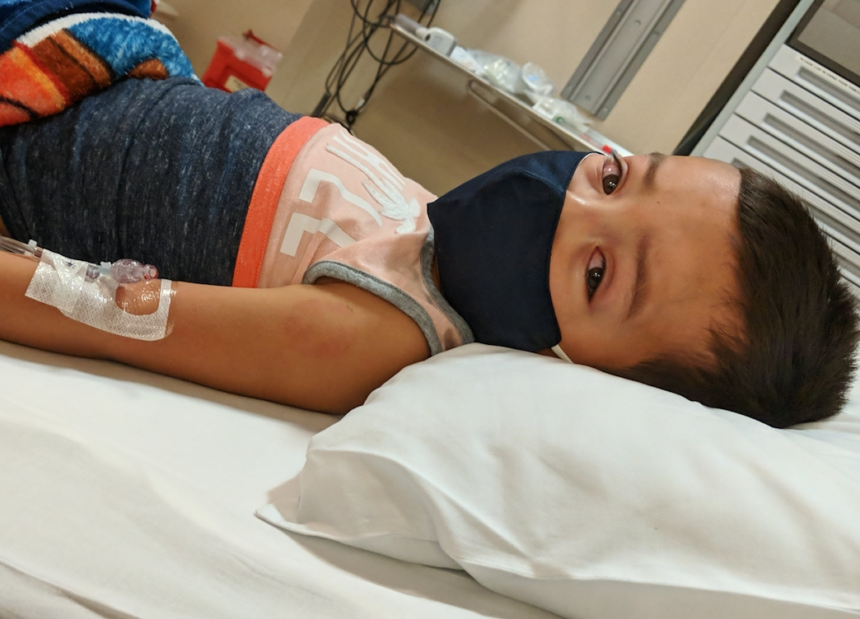Liam’s road to recovery

YUMA, Ariz. (KYMA, KECY) - After spending a week in the hospital, four-year-old Liam Lomaintewa is recovering from MIS-C, a new inflammatory syndrome found in children that is linked to COVID-19.
[RELATED STORY: Local Pediatrician speaks on MIS-C cases in Yuma]
The Yuma Regional Medical Center (YRMC) confirms it has three cases of children diagnosed with MIS-C. All three were sent to a Phoenix-area hospital to be treated.
The Center for Disease Control and Prevention (CDC) website states that MIS-C is a rare but serious complication associated with COVID-19.
For one local toddler, Liam, his mother, Dominique Lomaintewa, says it began when he had a fever of 104 degrees. Soon after, Liam had a seizure.
The ambulance was called, and paramedics took Liam to YRMC.
However, Liam was released that same day.
Four days later, Liam’s mother says when he woke up, he had red eyes that appeared to be swollen and purple. A second trip to the hospital and with blood work, doctors discovered he had COVID-19 antibodies and several inflamed organs.
Lomaintewa says COVID-19 was circulating within her family a few weeks earlier. On the CDC website, it states that most children developed MIS-C two to four weeks after infection with COVID-19.
Soon after, Liam was transported to Phoenix, where he received care for about a week until he was finally discharged.
During that week, doctors performed several tests. Lomaintewa says Liam was on seven different medications.
Before being diagnosed with MIS-C, Lomaintewa says Liam was a healthy toddler. Now his heart and coronary arteries are still inflamed. He has to stay on heart medication and see a cardiologist for at least three months.
Doctors also told Lomaintewa that Liam could not get excited, or else it may do him harm.
Like any other four-year-old, Liam is full of life and a happy child.
His mother says he gets excited with the littlest things.
“He gets excited for like getting a bagel in the morning. He gets excited about his food coming. He gets excited if you give him a bracelet. He’s an overly excited grateful little kid. I think it’s going to be super hard.” says Lomaintewa.
Because MIS-C is so new, doctors don’t know what the long term effects are, if any, for children that are diagnosed.
